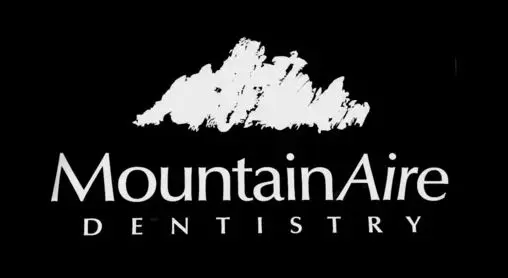Tackling Dry Mouth

Strategies to Overcome Your Fear of the Dentist
July 13, 2023
Fast Action Steps to Follow When Your Child Knocks Out a Tooth
July 28, 2023Tackling Dry Mouth

Do you constantly struggle with a dry-mouth feeling and can’t seem to find relief? This often uncomfortable condition is caused by a variety of environmental, lifestyle, or medical factors, and it’s important to understand the causes in order to find the right treatment for your symptoms. In this blog post, we’ll explore some of the common causes of dry mouth and give you some tips on how to manage it.
What is Dry Mouth?
Dry mouth, or xerostomia, is a condition in which the body doesn’t produce enough saliva. Saliva plays an important role in keeping our mouths moist and promoting good oral health. When this moisture is reduced due to dry mouth, it can cause various problems such as difficulty speaking and swallowing, increased cavities and tooth decay, an altered sense of taste, and gingivitis.
Causes
Dry mouth is caused when the salivary glands in the mouth don’t make enough saliva to keep your mouth wet. These glands may not work properly as the result of:
- Medications. Hundreds of medications, including many over-the-counter drugs, produce xerostomia as a side effect. Among the more likely types to cause problems are some of the drugs used to treat depression, high blood pressure and anxiety, as well as some antihistamines, decongestants, muscle relaxants and pain medications.
- Aging. Many older people experience xerostomia as they age. Contributing factors include the use of certain medications, changes in the body’s ability to process medication, inadequate nutrition, and having long-term health problems.
- Cancer therapy. Chemotherapy drugs can change the nature of saliva and the amount produced. This may be temporary, with normal salivary flow returning after treatment is completed. Radiation treatments to your head and neck can damage salivary glands, causing a marked decrease in saliva production. This may be temporary or permanent, depending on the radiation dose and area treated.
- Nerve damage. An injury or surgery that causes nerve damage to your head and neck area can result in xerostomia.
- Other health conditions. Xerostomia can be due to certain health conditions, such as diabetes, stroke, yeast infection (thrush) in your mouth or Alzheimer’s disease, or due to autoimmune diseases, such as Sjogren’s syndrome or HIV/AIDS. Snoring and breathing with your mouth open also can contribute to dry mouth.
- Tobacco and alcohol use. Drinking alcohol and smoking or chewing tobacco can increase xerostomia symptoms.
- Recreational drug use. Methamphetamine use can cause severe dry mouth and damage to teeth, a condition also known as “meth mouth.” Marijuana also can cause dry mouth.
How to Manage Dry Mouth
If you’re struggling with dry mouth, there are some things you can do to help manage the symptoms:
- Drink plenty of water – Staying hydrated is one of the best ways to keep your mouth moist and prevent dryness. Aim for 6-8 glasses a day.
- Chew sugar-free gum – Chewing gum can help stimulate saliva production. Look for sugar-free varieties to avoid unwanted sugar and calories.
- Avoid caffeine and alcohol – Both of these substances can be dehydrating, so it’s best to limit your intake.
- Use a humidifier – If you live in a dry climate or often suffer from dry air in your home, using a humidifier can help restore moisture levels in the air.
- Avoid mouthwashes with alcohol – Mouthwashes that contain alcohol can aggravate dry mouth symptoms, so it’s best to use an alcohol-free variety.
- Visit your dentist – If you’re still struggling with dry mouth despite trying these treatments, it may be time to visit your dentist.
Dental Treatments for Dry Mouth
If your dry mouth is caused by a medical condition or medication, your dentist may be able to recommend treatments that can help. These may include topical treatments such as salivary substitutes and oral rinses, devices such as tongue-scrapers and saliva stimulators, or medications like anticholinergic drugs or pilocarpine. Your dentist can also suggest lifestyle changes that can help you manage your symptoms.
Overall, xerostomia is an uncomfortable condition that can cause a variety of problems. It’s important to understand the underlying causes and take steps to manage them. Drinking plenty of water, avoiding caffeine and alcohol, using a humidifier, and visiting your dentist are all great ways to keep your mouth hydrated and promote good oral health. With the right treatment and lifestyle modifications, you can find relief from your dry mouth symptoms.
Make an Appointment with Mountain Aire Dentistry
If you’re struggling with dry mouth, it’s important to consult your dentist. At Mountain Aire Dentistry, we understand the importance of keeping your mouth healthy and are dedicated to providing quality care that meets your needs. Contact us today to schedule an appointment! Our knowledgeable team is here to answer any questions you may have and help you achieve optimal oral health.
When you visit our Broomfield dental office, your smile is our top priority. Our Dentists invite you to experience the difference a warm and caring team can provide for you and your family. Enjoy a unique and comfortable dental experience designed to bring a healthier and happier smile back into your life. We invite you to call or visit our Broomfield dental office and discover the exceptional difference we offer to those we serve.












